Personal life of Nikolai Nekrasov
The personal life of Nikolai Alekseevich Nekrasov was not always successful. In 1842, at a poetry evening, he met Avdotya Panaeva (ur. Bryanskaya), the wife of the writer Ivan Panaev.
Avdotya Panaeva, an attractive brunette, was considered one of the most beautiful women in St. Petersburg at that time. In addition, she was smart and was the hostess of a literary salon, which met in the house of her husband Ivan Panaev.
S. L. Levitsky. Photo portrait of N. A. Nekrasov
Her own literary talent attracted the young but already popular Chernyshevsky, Dobrolyubov, Turgenev, Belinsky to the circle in the Panaevs' house. Her husband, the writer Panaev, was characterized as a rake and a reveler.
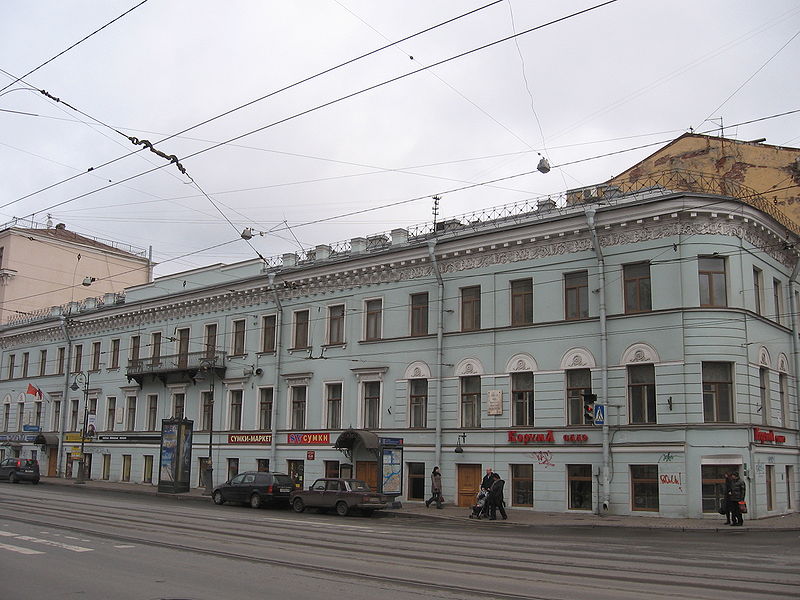
Kraevsky House, which housed the editorial office of the journal "Domestic Notes",
and also was Nekrasov's apartment
Despite this, his wife was distinguished by decency, and Nekrasov had to make considerable efforts to attract the attention of this wonderful woman. Fyodor Dostoevsky was also in love with Avdotya, but he failed to achieve reciprocity.
At first, Panaeva also rejected the twenty-six-year-old Nekrasov, who was also in love with her, which is why he almost committed suicide.
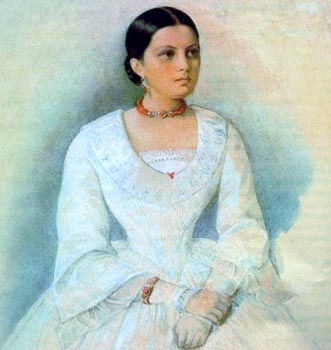
Avdotya Yakovlevna Panaeva
During one of the trips of the Panaevs and Nekrasov to the Kazan province, Avdotya and Nikolai Alekseevich nevertheless confessed their feelings to each other. Upon their return, they began to live in a civil marriage in the Panaevs' apartment, and together with Avdotya's legal husband, Ivan Panaev.
Such an alliance lasted almost 16 years, until the death of Panaev. All this caused public condemnation - they said about Nekrasov that he lives in a strange house, loves a strange wife, and at the same time rolls up scenes of jealousy to his lawful husband.
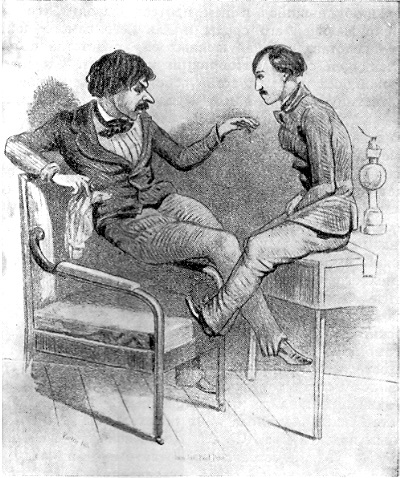
Nekrasov and Panaev.
Caricature by N. A. Stepanov. "Illustrated Almanac"
censored. 1848
During this period, even many of his friends turned away from him. But, despite this, Nekrasov and Panaeva were happy. She even managed to get pregnant from him, and Nekrasov created one of his best poetic cycles - the so-called "Panaevsky cycle" (they wrote and edited much of this cycle together).
The co-authorship of Nekrasov and Stanitsky (pseudonym Avdotya Yakovlevna) owns several novels that were very successful. Despite such a non-standard way of life, this trinity remained like-minded and comrades-in-arms in the revival and formation of the Sovremennik magazine.
In 1849, a boy was born to Avdotya Yakovlevna from Nekrasov, but he did not live long. At this time, Nikolai Alekseevich also fell ill. It is believed that strong fits of anger and mood swings are associated with the death of the child, which later led to a break in their relationship with Avdotya.
In 1862, Ivan Panaev died, and soon Avdotya Panaeva left Nekrasov. However, Nekrasov remembered her until the end of his life and, when drawing up his will, he mentioned her to Panaeva, this spectacular brunette, Nekrasov dedicated many of his fiery poems.
In May 1864, Nekrasov went on a trip abroad, which lasted about three months. He lived mainly in Paris with his companions - his sister Anna Alekseevna and the Frenchwoman Selina Lefresne (fr. Lefresne), whom he met back in St. Petersburg in 1863.
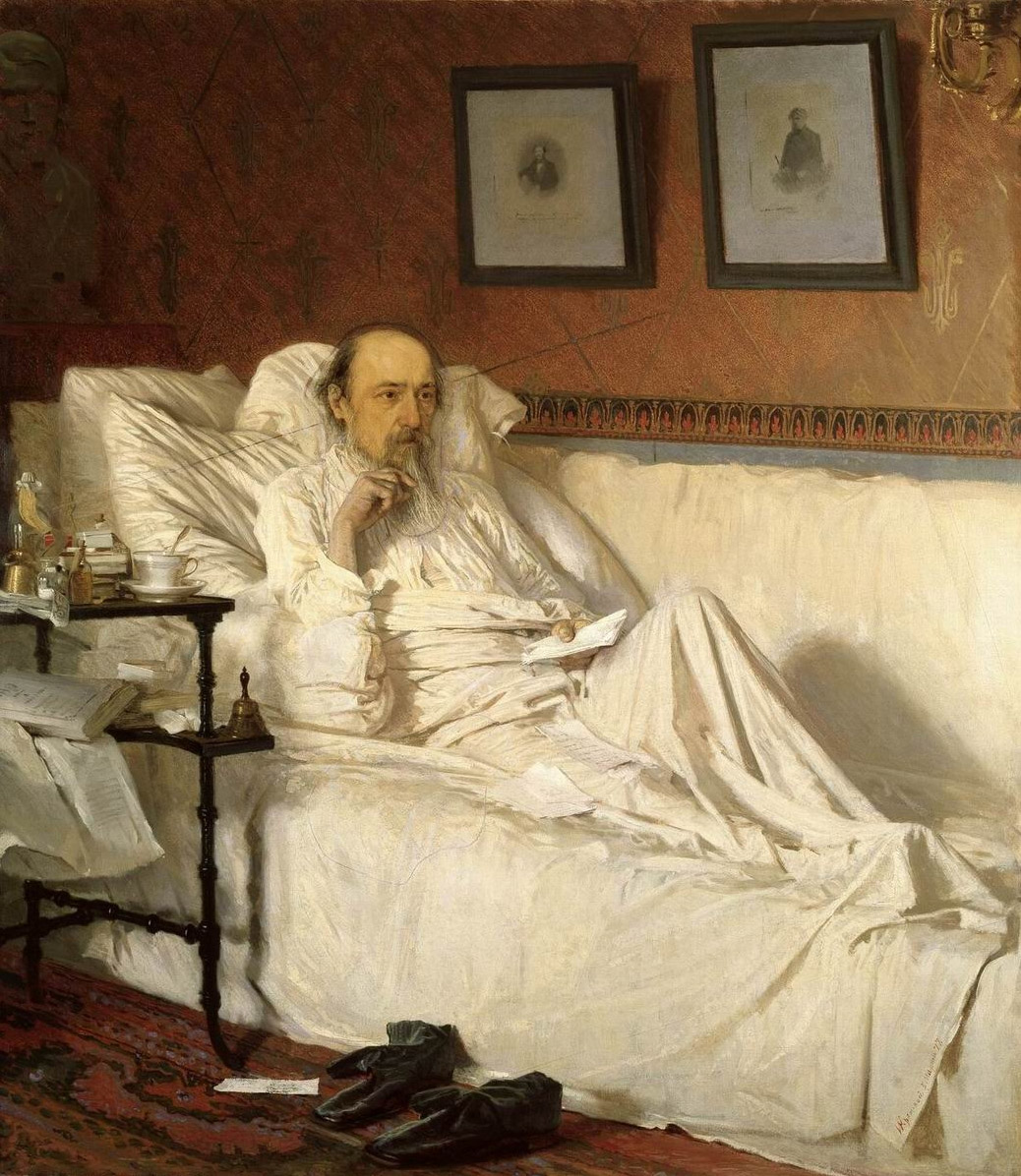
ON THE. Nekrasov during "The Last Songs"
(painting by Ivan Kramskoy, 1877-1878)
Selina was an ordinary actress of the French troupe, who performed at the Mikhailovsky Theater. She was distinguished by a lively disposition and an easy character. Selina spent the summer of 1866 in Karabikha. And in the spring of 1867, she went abroad, like last time, together with Nekrasov and his sister Anna. However, this time she never returned to Russia.
However, this did not interrupt their relationship - in 1869 they met in Paris and spent the whole of August by the sea in Dieppe. Nekrasov was very pleased with this trip, having also improved his health. During the rest, he felt happy, the reason for which was Selina, who was to his liking.
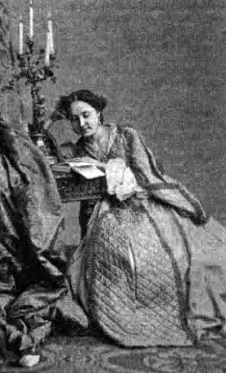
Selina Lefren
Although her attitude towards him was even and even a little dry. Returning, Nekrasov did not forget Selina for a long time and helped her. And in his dying will he appointed her ten and a half thousand rubles.
Later, Nekrasov met a village girl Fyokla Anisimovna Viktorova, simple and uneducated. She was 23 years old, he was already 48. The writer took her to theaters, concerts and exhibitions to fill in the gaps in education. Nikolai Alekseevich came up with her name - Zina.
So Fyokla Anisimovna began to be called Zinaida Nikolaevna. She memorized Nekrasov's poems and admired him. Soon they got married. However, Nekrasov still yearned for his former love - Avdotya Panaeva - and at the same time loved both Zinaida and the Frenchwoman Selina Lefren, with whom he had an affair abroad.
One of his most famous poetic works - "Three Elegies" - he dedicated only to Panaeva.
2
Mention should also be made of Nekrasov's passion for playing cards, which can be called the hereditary passion of the Nekrasov family, starting with Nikolai Nekrasov's great-grandfather, Yakov Ivanovich, an "innumerably rich" Ryazan landowner who quickly lost his wealth.
However, he got rich again quickly enough - at one time Yakov was a governor in Siberia. As a result of the passion for the game, his son Alexei got only the Ryazan estate. Having married, he received the village of Greshnevo as a dowry. But already his son, Sergei Alekseevich, having laid the Yaroslavl Greshnevo for a term, lost it too.
Alexey Sergeevich, when he told his son Nikolai, the future poet, a glorious pedigree, summarized:
“Our ancestors were rich. Your great-great-grandfather lost seven thousand souls, great-grandfather - two, grandfather (my father) - one, I - nothing, because there was nothing to lose, but I also like to play cards.
And only Nikolai Alekseevich was the first to change his fate. He also liked to play cards, but was the first to not lose. At a time when his ancestors were losing, he alone won back and won back a lot.
The bill ran into hundreds of thousands. So, Adjutant General Alexander Vladimirovich Adlerberg, a well-known statesman, minister of the Imperial Court and personal friend of Emperor Alexander II, lost a very large sum to him.
And the Minister of Finance Alexander Ageevich Abaza lost more than a million francs to Nekrasov. Nikolai Alekseevich Nekrasov managed to return Greshnevo, where he spent his childhood and which was taken away for the debt of his grandfather.
Another hobby of Nekrasov, also passed on to him from his father, was hunting. Dog hunting, which was served by two dozen arriving, greyhounds, vyzhlyatnikov, hounds and stirrups, was the pride of Alexei Sergeevich.
The poet's father forgave his offspring long ago and, not without jubilation, followed his creative and financial successes. And the son until the death of his father (in 1862) came to see him in Greshnevo every year. Nekrasov devoted funny poems to canine hunting and even the poem of the same name “Dog Hunting”, which glorifies the prowess, scope, beauty of Russia and the Russian soul.
In adulthood, Nekrasov even became addicted to bear hunting ("It's fun to beat you, respectable bears ...").
Avdotya Panaeva recalled that when Nekrasov was going to hunt a bear, there were large fees - expensive wines, snacks and just provisions were brought. They even took a chef with them. In March 1865, Nekrasov managed to get three bears at once in a day. He appreciated the bear-catchers, dedicated poems to them - Savushka (“who rallied on the forty-first bear”) from “In the Village”, Savely from “Who Lives Well in Russia”.
The poet also liked to hunt game. His fondness for walking through the swamp with a gun was boundless. Sometimes he would go hunting at sunrise and not return until midnight. He also went hunting with the "first hunter of Russia" Ivan Turgenev, with whom they were friends and corresponded for a long time.
Nekrasov, in his last message to Turgenev abroad, even asked him to buy him a Lancaster gun in London or Paris for 500 rubles. However, their correspondence was destined to be interrupted in 1861. Turgenev did not answer the letter and did not buy a gun, and their long-term friendship was put an end to.
And the reason for this was not ideological or literary differences. Nekrasov's common-law wife, Avdotya Panaeva, got involved in a lawsuit over the inheritance of the ex-wife of the poet Nikolai Ogaryov. The court awarded Panaeva a claim for 50 thousand rubles. Nekrasov paid this amount, preserving the honor of Avdotya Yakovlevna, but thereby his own reputation was shaken.
Turgenev found out from Ogarev himself in London all the intricacies of the dark case, after which he broke off all relations with Nekrasov. Nekrasov, the publisher, also broke up with some other old friends - L. N. Tolstoy, A. N. Ostrovsky. At this time, he switched to a new democratic wave emanating from the Chernyshevsky-Dobrolyubov camp.
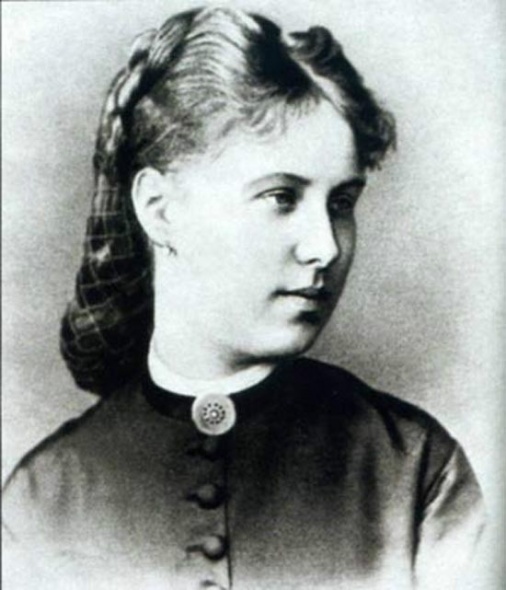
Zinaida Nikolaevna Nekrasova (1847-1914)
- wife of the Russian poet Nikolai Alekseevich Nekrasov
Fyokla Anisimovna, who became his late muse in 1870, named Zinaida Nikolaevna by Nekrasov in a noble way, also became addicted to her husband's hobby, to hunting. She even saddled a horse herself and went hunting with him in a rait-coat and tight-fitting trousers, with a Zimmerman on her head. All this delighted Nekrasov.
But once, while hunting in the Chudovsky swamp, Zinaida Nikolaevna accidentally shot Nekrasov's beloved dog, a black pointer named Kado. After that, Nekrasov, who devoted 43 years of his life to hunting, forever hung his gun on a nail.
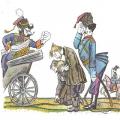 “Lefty” - a summary of the work N
“Lefty” - a summary of the work N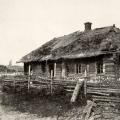 Turgenev, "Biryuk": a summary
Turgenev, "Biryuk": a summary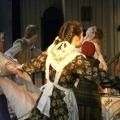 Comedy A.N. Ostrovsky "Poverty is not a vice": a summary of the work
Comedy A.N. Ostrovsky "Poverty is not a vice": a summary of the work